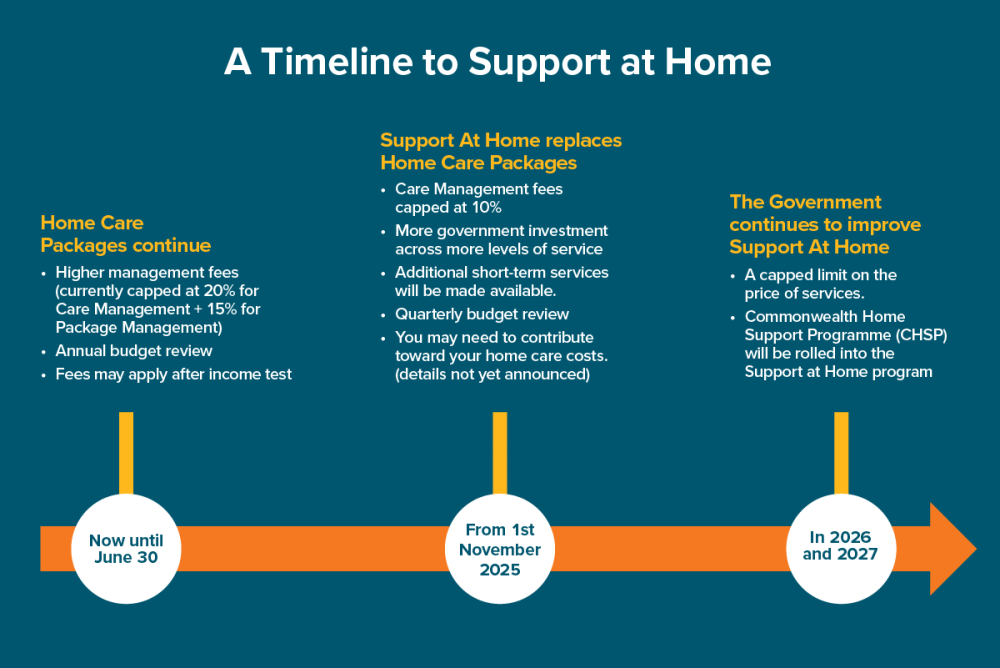How home care package providers tailor care to individual disability goals
How home care package providers tailor care to individual disability goals
Blog Article
Everything About Home Treatment Services for People With Disabilities: NDIS Registered Assistance
Home care services under the NDIS play a critical duty in supporting individuals with impairments. These solutions are developed to boost daily living via tailored help, varying from personal care to flexibility assistance. Recognizing just how to browse these alternatives can be intricate. This overview checks out the various facets of NDIS home care, from available solutions to the option of carriers, highlighting necessary factors to consider for those seeking support. The trip toward empowered care begins here.
Recognizing the NDIS and Its Objective
The National Impairment Insurance Policy System (NDIS) functions as a transformative structure designed to provide support and services for individuals with handicaps. Established to improve the high quality of life and warranty fair access to crucial sources, the NDIS encourages individuals by supplying customized strategies tailored to their distinct needs. It intends to promote freedom, making it possible for people to seek their individual goals and aspirations.Through a structured approach, the NDIS allocates financing for numerous assistances, including education, work assistance, and community participation. This all-inclusive plan not only concentrates on instant treatment however likewise highlights long-term developing results. By promoting option and control, the NDIS motivates participants to choose their favored company, assuring that treatment straightens with their worths and choices. Ultimately, the NDIS stands for a significant dedication to enhancing the lives of individuals with impairments, promoting inclusivity, and constructing a much more supportive society.
Kinds of Home Care Provider Available
Different sorts of home care solutions accommodate individuals with impairments, mainly concentrating on individual care help and respite care alternatives. Personal treatment support offers essential assistance with daily tasks, while respite care uses short-term alleviation for primary caregivers. Understanding these solutions is vital for making certain the well-being of both individuals with specials needs and their families.
Personal Treatment Help
While maneuvering day-to-day live can offer challenges for individuals with specials needs, individual treatment aid provides vital assistance tailored to their special demands. This kind of home care service includes a variety of tasks made to advertise independence and enhance lifestyle. Personal care aides aid with daily tasks such as bathing, dressing, grooming, and toileting, making sure people maintain personal health and comfort. They may likewise assist with dish preparation, drug management, and wheelchair assistance. By giving individualized treatment, these experts equip individuals to involve more completely in their social activities and daily routines. On the whole, individual treatment aid plays a substantial function in fostering self-respect and autonomy for those with impairments, permitting them to grow in their home setting.

Break Treatment Options
Break treatment works as a necessary source for households and caretakers of people with impairments, giving momentary remedy for the demands of everyday caregiving. This type of solution can take numerous types, including at home reprieve care, where skilled professionals visit the home to aid with care tasks. Families might choose for facility-based break care, where people get care in a customized setting, enabling caretakers to take a break. Furthermore, some organizations provide emergency situation reprieve services for unanticipated situations. These choices not only aid alleviate caretaker tension but also advertise the wellness of individuals with impairments by using them new experiences and social communication. Generally, respite care plays an essential function in sustaining both caregivers and those they look after.

Exactly How to Accessibility NDIS Home Treatment Solutions
Accessing NDIS home care services involves understanding the eligibility requirements stated by the National Disability Insurance Coverage Plan. Individuals must navigate an organized application process to protect the required assistance tailored to their requirements. This section will certainly clarify both the eligibility needs and the steps associated with looking for solutions.
Qualification Standards Described
To get approved for NDIS home treatment solutions, people need to fulfill certain qualification criteria that assess their scenarios and requirements. Initially, applicants must be aged in between 7 and 65 years and have a irreversible and considerable disability that impacts their capacity to execute everyday activities. Furthermore, they must be an Australian resident, an irreversible homeowner, or hold a Protected Special Classification Visa. The NDIS requires evidence of the handicap, generally through clinical assessments or records. Individuals ought to show that they require support to get involved in financial and social life. These criteria guarantee that services are guided in the direction of those that genuinely require aid, advertising freedom and improved lifestyle for individuals with specials needs.
Application Process Steps
Can I Choose My Very Own Support Workers Via NDIS?
The private inquired whether they can choose their own assistance workers under the NDIS structure. Usually, participants have the flexibility to pick support employees, fostering customized care that aligns with their particular needs and choices.
What Happens if My Demands Modification After Obtaining Support?
They need to interact these adjustments to their service supplier if an individual's needs adjustment after receiving support. Modifications can be made to the treatment strategy, making sure that the assistance remains relevant and reliable for their scenarios.

Exist Limits on Exactly How Many Hours of Care I Can Get?
The individual asked regarding prospective limitations on the variety of care hours got. Normally, such limitations might exist based on specific plans or funding plans, emphasizing the importance of reviewing agreements and standards on a regular basis.
Can I Utilize NDIS Financing for Home Adjustments?
The inquiry of utilizing financing for home adjustments emerges often. Generally, individuals might make use of NDIS funding for essential modifications to their homes, making certain availability and safety, section upon conference specific eligibility standards and guidelines.
Exactly how Do I Take care of Grievances Concerning My Home Care Solutions?
To resolve grievances concerning home care solutions, individuals need to first document their worries. After that, they can connect directly with their service supplier, looking for resolution, or intensify the issue to relevant oversight bodies if needed. Home care solutions under the NDIS play a crucial function in supporting people with disabilities. Different types of home care services cater to individuals with disabilities, primarily focusing on individual care support and see this page respite care choices. home care package providers. Individual treatment assistance gives important support with daily tasks, while reprieve care offers temporary alleviation for main caregivers. Households may decide for facility-based reprieve care, where people obtain care in a specialized setting, permitting caregivers to take a break. How can family members successfully handle the financial aspects of home treatment solutions for individuals with disabilities?
Report this page